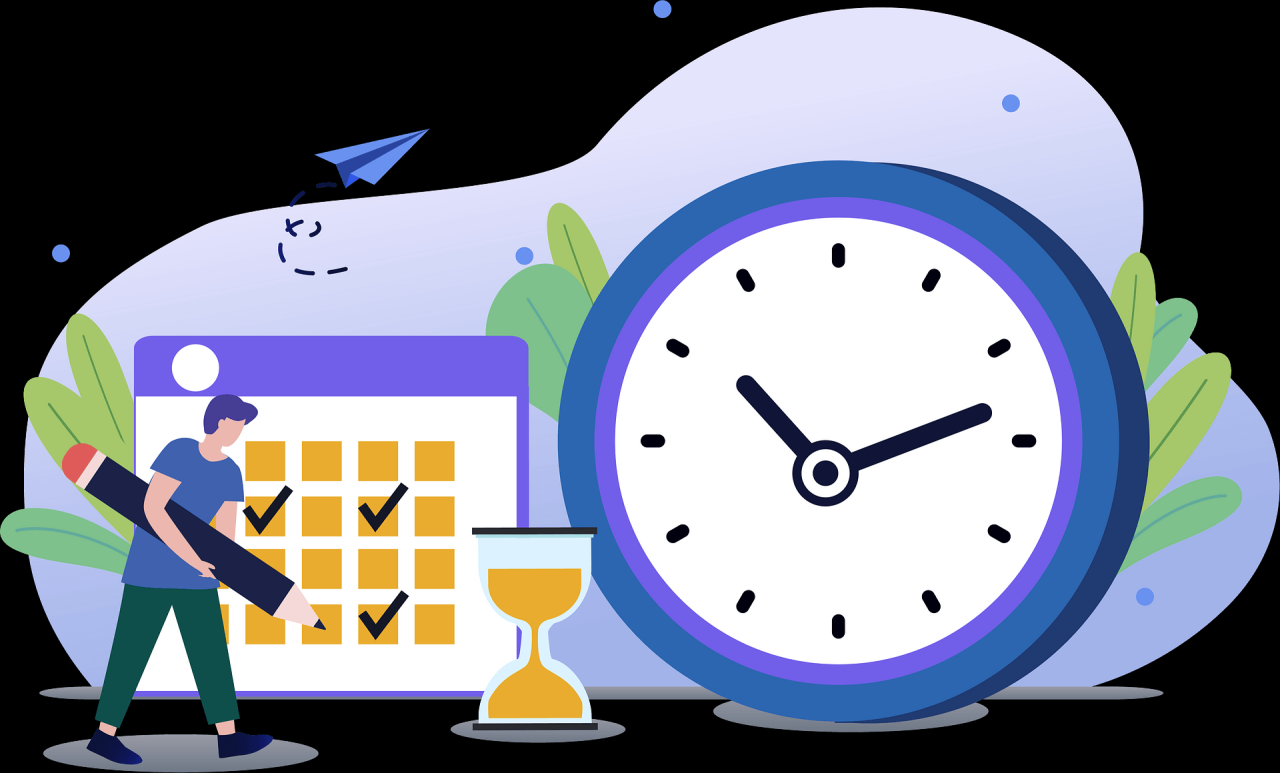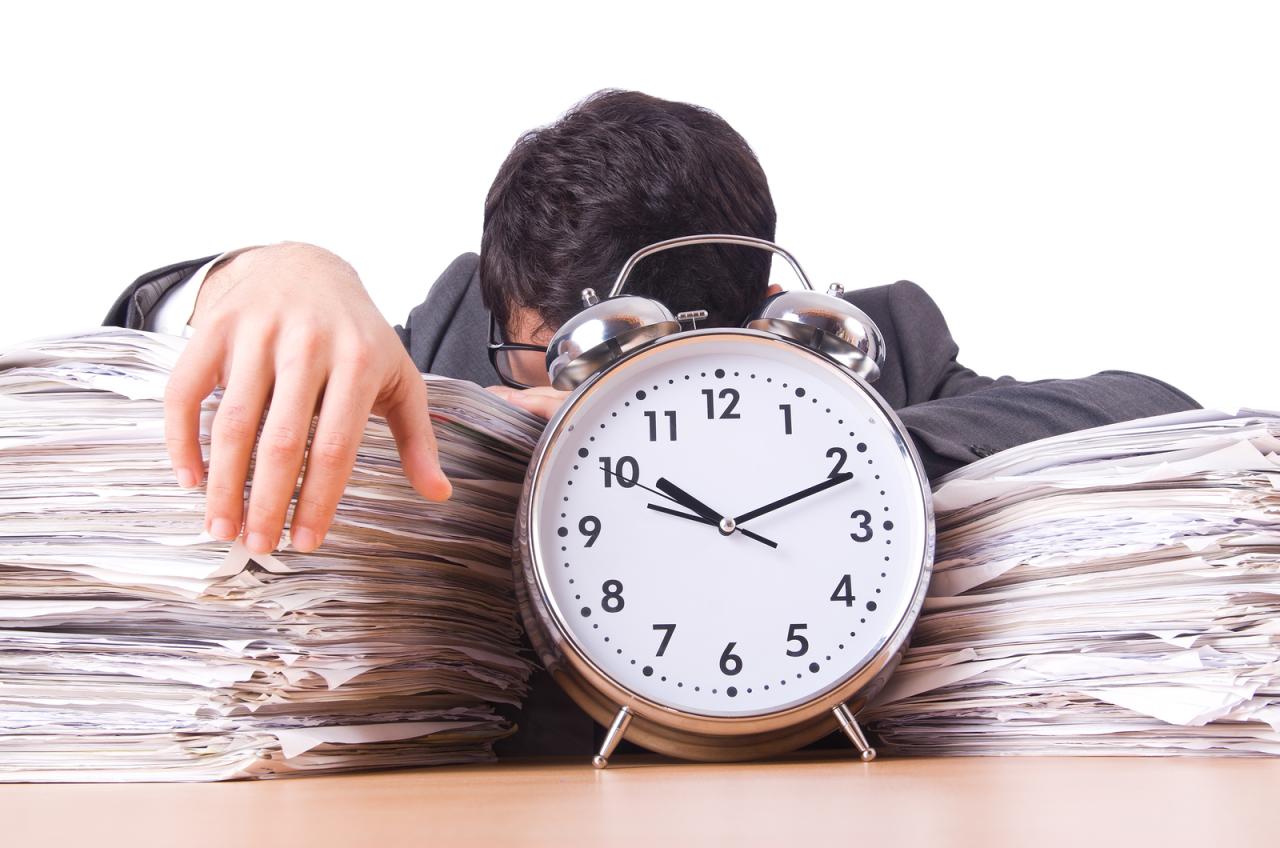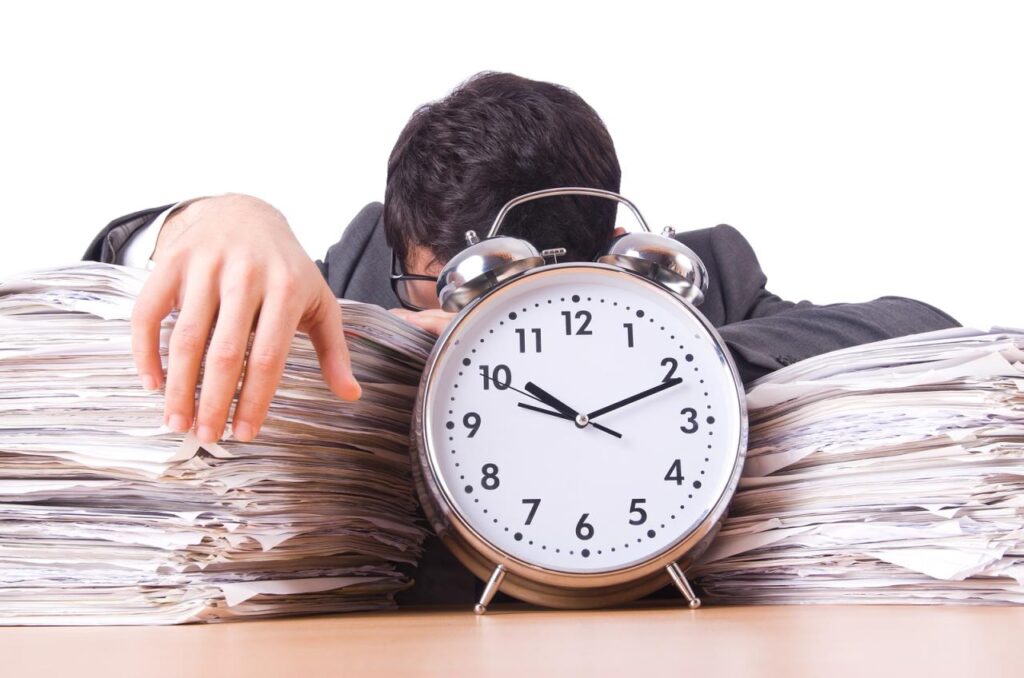How to manage my time while gaming online is a crucial topic for both casual and competitive gamers alike. In an age where gaming can easily consume vast amounts of free time, understanding how to strike a balance between gaming and other responsibilities is vital. This guide delves into the significance of time management in gaming, outlining practical steps to ensure your gaming experience is enjoyable and productive.
By recognizing the importance of setting clear gaming goals, establishing a structured schedule, and utilizing helpful tools, gamers can enhance their performance and maintain a healthy lifestyle. Understanding common pitfalls and learning how to overcome them will help you make the most out of your gaming sessions, leading to greater satisfaction and success.
Understanding Time Management in Gaming
Effective time management is a crucial skill in the realm of online gaming, where distractions and immersive experiences can easily lead to hours of unaccounted play. As gamers engage in competitive environments, understanding how to allocate time wisely can enhance both enjoyment and performance. By prioritizing gaming time alongside other responsibilities, players can find a balance that allows for fulfilling gameplay while maintaining a healthy lifestyle.
The importance of time management in gaming extends beyond just the gameplay itself. Poor time management can lead to detrimental consequences, such as decreased academic or work performance, strained relationships, and increased stress levels. Players may find themselves neglecting essential tasks and responsibilities in favor of extended gaming sessions, which can lead to burnout and dissatisfaction with both gaming and personal life.
Common Time-Wasting Habits and Solutions
Recognizing time-wasting habits is the first step towards effective time management. Many gamers unknowingly fall into patterns that consume valuable time without contributing to skill development or enjoyment.
To counteract these habits, here are several common time-wasting behaviors along with strategies for overcoming them:
- Continuous Play Without Breaks: Players often lose track of time during intense gaming sessions. Implementing scheduled breaks can rejuvenate focus and prevent fatigue. For example, the Pomodoro technique encourages gamers to play for 25 minutes followed by a 5-minute break.
- Inactivity During Downtime: While waiting for matches or during loading screens, gamers sometimes scroll through social media or browse forums. Utilizing this downtime for quick stretches or planning the next gaming session can maximize productivity.
- Excessive Exploration: Open-world games can lead to aimless wandering. Setting specific objectives before starting can help focus efforts and reduce time spent on unproductive exploration.
- Playing During Scheduled Responsibilities: Gamers may prioritize gaming over work or study. Creating a clear schedule that allocates specific times for gaming, work, and personal activities can instill discipline and ensure balance.
“Time management in gaming is not just about playing less, but playing smarter.”
By identifying and addressing these common time-wasting habits, gamers can enhance their overall experience and maintain a balanced approach to their gaming lifestyle.
Setting Gaming Goals
Establishing clear gaming goals is essential for maintaining a balanced approach to online gaming. By setting both short-term and long-term objectives, gamers can enhance their experiences while ensuring their gaming does not interfere with other commitments. This structured approach helps create a roadmap that keeps players focused and motivated.
Setting gaming goals involves identifying what you wish to achieve in both the short and long run. This can range from mastering a particular game, achieving a specific rank, or even completing a series of games within a certain timeframe. By understanding personal interests and commitments, players can prioritize their objectives effectively.
Creating a List of Short-Term and Long-Term Gaming Goals
Developing a clear list of goals helps streamline your gaming experience. Short-term goals typically focus on immediate achievements that can lead to rewarding gameplay. Long-term goals, on the other hand, are broader aspirations that guide your gaming journey over months or years.
Consider the following when setting your gaming goals:
- Short-Term Goals: Aim for achievements such as completing a specific level, reaching a certain score, or participating in a tournament within the next month.
- Long-Term Goals: Strive for milestones like mastering multiple games, achieving a top rank in a competitive league, or committing to a consistent gaming schedule over a year.
Prioritizing Gaming Objectives
Prioritization is crucial for effective time management in gaming. By assessing personal interests and existing commitments, gamers can align their goals with their available time and energy levels.
Consider the following strategies for prioritizing your gaming objectives:
- Reflect on Interests: Identify games that genuinely excite you and consider them as primary goals.
- Assess Time Commitment: Evaluate your daily and weekly schedules to determine how much time you can realistically allocate to gaming.
- Balance with Other Commitments: Ensure that gaming goals do not conflict with responsibilities such as work, study, or social activities.
Tracking Progress Toward Gaming Goals
Monitoring your progress is vital for staying motivated and ensuring that you are on track to achieve your gaming goals. Utilizing various methods can simplify this process.
Effective progress tracking can include:
- Game-Specific Metrics: Many games provide in-built tracking systems that allow players to monitor achievements, scores, and ranks.
- Goal-Setting Apps: Consider using productivity apps that allow you to set reminders and log your gaming sessions.
- Journaling: Maintain a gaming journal where you can record your daily achievements, challenges faced, and strategies for improvement.
Establishing goals and tracking progress transforms gaming into a purposeful activity, fostering both enjoyment and achievement.
Establishing a Gaming Schedule

Creating a balanced gaming schedule is crucial for gamers aiming to enjoy their favorite pastime while fulfilling daily responsibilities. A well-structured timetable not only enhances the gaming experience but also ensures that personal, academic, or work commitments are not neglected. By establishing a routine, gamers can maximize their enjoyment and productivity.
To effectively manage gaming time alongside other obligations, designing a weekly gaming schedule is key. This involves allocating specific time blocks for gaming sessions while considering other daily responsibilities. A flexible yet structured approach allows for adjustments based on gaming events or changes in personal life, ensuring that gaming remains a rewarding part of the routine without becoming overwhelming.
Designing a Weekly Gaming Schedule
An efficient gaming schedule integrates periods for both gaming and other important activities. Here’s an example structure of a weekly schedule that balances gaming with daily life:
- Monday to Friday
- 6:00 PM – 8:00 PM: Homework or Work-related Tasks
- 8:00 PM – 10:00 PM: Gaming Session
- Saturday
- 10:00 AM – 1:00 PM: House Chores or Errands
- 1:00 PM – 5:00 PM: Extended Gaming Session
- Sunday
- 10:00 AM – 12:00 PM: Family Time or Outdoor Activities
- 12:00 PM – 3:00 PM: Casual Gaming Session
This example showcases a balance between gaming and essential daily activities, allowing gamers to allocate time for responsibilities while enjoying their gaming sessions.
Adjusting the Schedule
Flexibility is vital in maintaining a gaming schedule that accommodates unexpected changes in life or gaming events. Here’s a method for adjusting the schedule based on such changes:
Regularly assess your commitments and adapt your gaming sessions to ensure they fit seamlessly into your life.
- Assess upcoming gaming events or tournaments that might require additional time.
- Communicate with friends or teammates about available gaming times.
- Use a digital calendar to easily shift time blocks when necessary.
- Prioritize key responsibilities before gaming to avoid last-minute adjustments.
By actively managing and adjusting the gaming schedule, players can enjoy their gaming experience without compromising their overall responsibilities, leading to a more satisfying and stress-free lifestyle.
Utilizing Tools for Time Management
In the fast-paced world of online gaming, effective time management is essential to maintain a balanced lifestyle. Various tools and applications can help gamers keep their playtime in check, allowing them to enjoy their favorite games without sacrificing other important aspects of life. By leveraging these resources, players can optimize their gaming sessions and ensure they remain productive and focused.
There are numerous tools available that cater to time management needs in gaming. Some popular applications include RescueTime, Toggl, and Clockify, which track how much time is spent on different activities and offer insights into habits and productivity. These tools often come with features such as reports and analytics, allowing users to identify patterns in their gaming behavior and make informed adjustments.
Setting Reminders and Alerts for Gaming Sessions and Breaks
Setting reminders and alerts is crucial for managing gaming time effectively. By utilizing calendar applications and reminder tools, gamers can schedule their gaming sessions and breaks, ensuring they take necessary pauses to prevent burnout.
These reminders can be tailored to fit individual gaming habits, such as:
- Using Google Calendar to block out specific times for gaming, with alerts set for both start and end times.
- Employing task management apps like Todoist, which allow for creating recurring tasks to remind players when it’s time to play or take breaks.
- Leveraging smartphone apps like Alarmy, which can be set to ring at specific intervals, providing gentle nudges to step away from the screen and refresh.
By establishing a routine and utilizing these tools, gamers can maintain a healthy balance between gaming and other responsibilities.
Utilizing Timers Effectively to Manage Gaming Durations
Timers are invaluable for managing gaming durations and ensuring that players stay within their designated time limits. When used strategically, timers can enhance the overall gaming experience while also promoting discipline.
Consider the following tips to make the most of timers:
- Implement the Pomodoro Technique, where players game for 25 minutes followed by a 5-minute break, using apps like Focus Booster or Forest to track time.
- Set a countdown timer on a smartphone or computer to signal when it’s time to wrap up a gaming session, allowing players to prepare for a smooth transition to other activities.
- Incorporate specific gaming sessions with friends around timed events, ensuring that game nights remain fun while adhering to a predetermined schedule.
“Time management in gaming not only helps in enhancing performance but also fosters a healthier lifestyle by promoting breaks and reducing fatigue.”
By actively managing gaming durations through these methods, players can enjoy their gaming experience while still prioritizing their overall well-being.
Creating a Balanced Lifestyle

Incorporating a balanced lifestyle into gaming routines is essential to ensure both physical health and optimal gaming performance. Gamers often spend extended periods in front of screens, which can lead to neglecting physical activity, poor nutrition, and insufficient breaks. Addressing these aspects can enhance not only the gaming experience but also overall well-being.
Engaging in regular breaks and physical activity during gaming sessions plays a crucial role in maintaining focus and stamina. It is important to take time away from the screen to refresh both the mind and body. Breaks encourage circulation, reduce eye strain, and prevent the physical discomfort associated with prolonged sitting. Moreover, incorporating movement into these breaks can significantly enhance mood and energy levels.
Activities for Breaks, How to manage my time while gaming online
During breaks, gamers can participate in various activities that promote physical health and mental clarity. These activities are designed to re-energize and help maintain focus:
- Stretching: Simple stretches can alleviate tension in muscles and promote better posture. Focus on neck, shoulders, and back stretches to counteract the effects of sitting.
- Short Walks: Taking a brief walk, even around the room or house, can stimulate blood flow and provide a refreshing change of scenery.
- Breathing Exercises: Deep breathing helps reduce stress and refocuses the mind. Try inhaling deeply for a count of four, holding for four, and exhaling for four.
- Quick Workouts: Engaging in a short bout of exercise, such as jumping jacks or push-ups, can boost endorphins and invigorate the body.
In addition to physical activities, it is beneficial to focus on nutrition and hydration during gaming sessions. Gamers should prioritize healthy snacks and proper hydration to maintain energy levels and concentration throughout their gameplay.
Nutritious Snacks and Hydration Tips
Eating the right foods and staying hydrated can greatly impact gaming performance. Opting for nutritious snacks ensures sustained energy without causing spikes and crashes in blood sugar levels.
Here are some examples of nutritious snacks suitable for gamers:
- Fresh Fruits: Apples, bananas, and berries provide quick energy along with vitamins and fiber.
- Nuts and Seeds: A handful of almonds or pumpkin seeds offers healthy fats, protein, and essential nutrients.
- Vegetable Sticks: Carrot or cucumber sticks with hummus are crunchy, satisfying, and low in calories.
- Whole Grain Crackers: Pairing whole grain crackers with cheese or nut butter can provide a good balance of carbohydrates and protein.
Proper hydration is equally important. Keeping a water bottle nearby during gaming sessions is an excellent reminder to stay hydrated. It is recommended to consume water regularly, aiming for at least 8-10 cups a day, and more during gaming marathons.
“Balanced nutrition and regular breaks are the key to sustaining high performance and enjoyment in gaming.”
Analyzing Gaming Sessions
Reflecting on gaming sessions is a vital aspect of effective time management. By analyzing your gameplay, you can identify patterns, habits, and areas for improvement that will not only enhance your gaming experience but also ensure that your time is spent productively. Understanding how to review your sessions can lead to better gaming habits and balance in your overall lifestyle.
One effective method for reviewing gaming sessions is to maintain a gaming journal, where you can log each session’s date, duration, and a brief summary of what you accomplished. This allows you to track your progress and reflect on the effectiveness of your gameplay, enabling you to identify what works best for you.
Techniques for Identifying Productive vs. Unproductive Gameplay Time
Understanding the difference between productive and unproductive gameplay time is essential for improving time management. Productive gameplay typically involves engaging with your objectives, completing challenges, or participating in meaningful interactions with other players. Unproductive time, however, often arises from aimless wandering, excessive socializing without purpose, or distractions that lead away from your goals.
To effectively distinguish between these two types of gameplay, consider the following techniques:
- Session Review: After each gaming session, take a moment to evaluate what you achieved versus what you intended to accomplish. Did you meet your goals, or did you find yourself distracted?
- Time Tracking: Use tools or apps to monitor the time spent on specific activities during your gaming sessions. This data will help highlight trends in your gameplay.
- Feedback from Others: Engage with gaming buddies or online communities to gain insights into your gameplay. Their perspectives can sometimes reveal blind spots in your own assessment.
- Self-Reflection: Ask yourself critical questions about your gaming habits. Were there moments where you felt productive? Were there times you realized you were just passing time?
By implementing these techniques, you can gain a clearer understanding of your gameplay efficiency and make necessary adjustments to enhance your time management.
Framework for Setting Future Gaming Intentions
Creating a framework for future gaming intentions based on session reviews can significantly improve your gaming strategy. This framework should be adaptable, taking into account the insights you glean from your analyses.
Consider these steps to establish a robust framework for your gaming sessions:
- Identify Key Goals: Based on your session reviews, establish specific short-term and long-term gaming goals that will guide your future sessions.
- Set Time Limits: Create time limits for each session based on past productivity levels to ensure you maximize your efficiency.
- Plan Ahead: Develop a plan for each gaming session that Artikels what you intend to accomplish, including any milestones or achievements you hope to reach.
- Adjust and Adapt: Regularly revisit your goals and time limits, adjusting them as necessary based on your ongoing analysis of your gameplay.
By following this structured framework, you can create a more intentional gaming approach, ensuring that each session aligns with your broader time management and lifestyle goals.
“The key to effective time management in gaming lies in understanding your patterns and making informed adjustments for future sessions.”
Managing Social Gaming Interactions: How To Manage My Time While Gaming Online
Social gaming has transformed from a solitary activity into a vibrant community experience, enabling players to connect and collaborate with friends worldwide. However, balancing these social interactions with effective time management is crucial to ensure gaming remains enjoyable without impinging on personal responsibilities. Here, we explore strategies to coordinate gaming sessions with friends while maintaining a focus on personal time management and productivity.
Coordinating Gaming Times with Friends
Establishing a shared gaming schedule with friends requires clear communication and flexibility. By agreeing on specific times to play, gamers can create a structured environment that fosters camaraderie while respecting individual time limits.
Consider the following strategies for effective coordination:
- Set a Regular Schedule: Designate specific days and times for gaming sessions. This helps everyone manage their time and anticipate when they will engage in multiplayer activities.
- Use Shared Calendars: Platforms like Google Calendar can be utilized to mark gaming sessions, allowing all members to see when they are free to play.
- Communicate Availability: Use messaging apps to inform friends about your availability. Quick updates can help all players adjust their schedules accordingly.
Setting Boundaries During Multiplayer Gaming Sessions
Creating boundaries during gaming sessions is essential for maintaining focus and ensuring that gameplay does not interfere with other commitments. Effective boundary-setting can make multiplayer gaming more enjoyable and less disruptive.
Implement these strategies to establish clear boundaries:
- Time Limits: Agree in advance on the duration of gaming sessions to prevent extended play that could lead to fatigue or neglecting responsibilities.
- Designate Breaks: Schedule short breaks during gaming to allow players to step away, recharge, and refocus before continuing.
- Prioritize Responsibilities: Remind each other to prioritize real-life obligations, ensuring that gaming remains a fun pastime rather than a source of stress.
Forming Accountability Partnerships with Fellow Gamers
Partnering with fellow gamers for accountability can significantly enhance time management efforts. By working together towards mutual gaming goals, players can help each other stay motivated and on track.
Consider the following tips for forming effective accountability partnerships:
- Set Shared Goals: Establish common objectives such as completing certain game levels or reaching specific achievements, which can provide motivation and a sense of purpose.
- Regular Check-Ins: Schedule weekly or bi-weekly meetings to discuss progress, share challenges, and celebrate achievements. These conversations can reinforce commitment to time management.
- Encourage Honest Feedback: Foster an open environment where partners can discuss their gaming habits candidly, helping each other to make adjustments where necessary.
Frustration in gaming is something every player encounters at some point, but knowing how to manage it can make all the difference. When you feel overwhelmed, it’s helpful to take a step back and explore effective strategies. For instance, you might find useful tips in the article about what to do when you get frustrated in games , which offers practical advice to help you stay calm and improve your gameplay experience.
Frustration in gaming is a common experience, but knowing how to manage it can enhance your playtime. When you find yourself at a breaking point, it’s essential to take a step back and assess your feelings. Implementing strategies from our guide on what to do when I get frustrated in games can help you regain focus and enjoy the game again.
Remember, it’s all about having fun!


